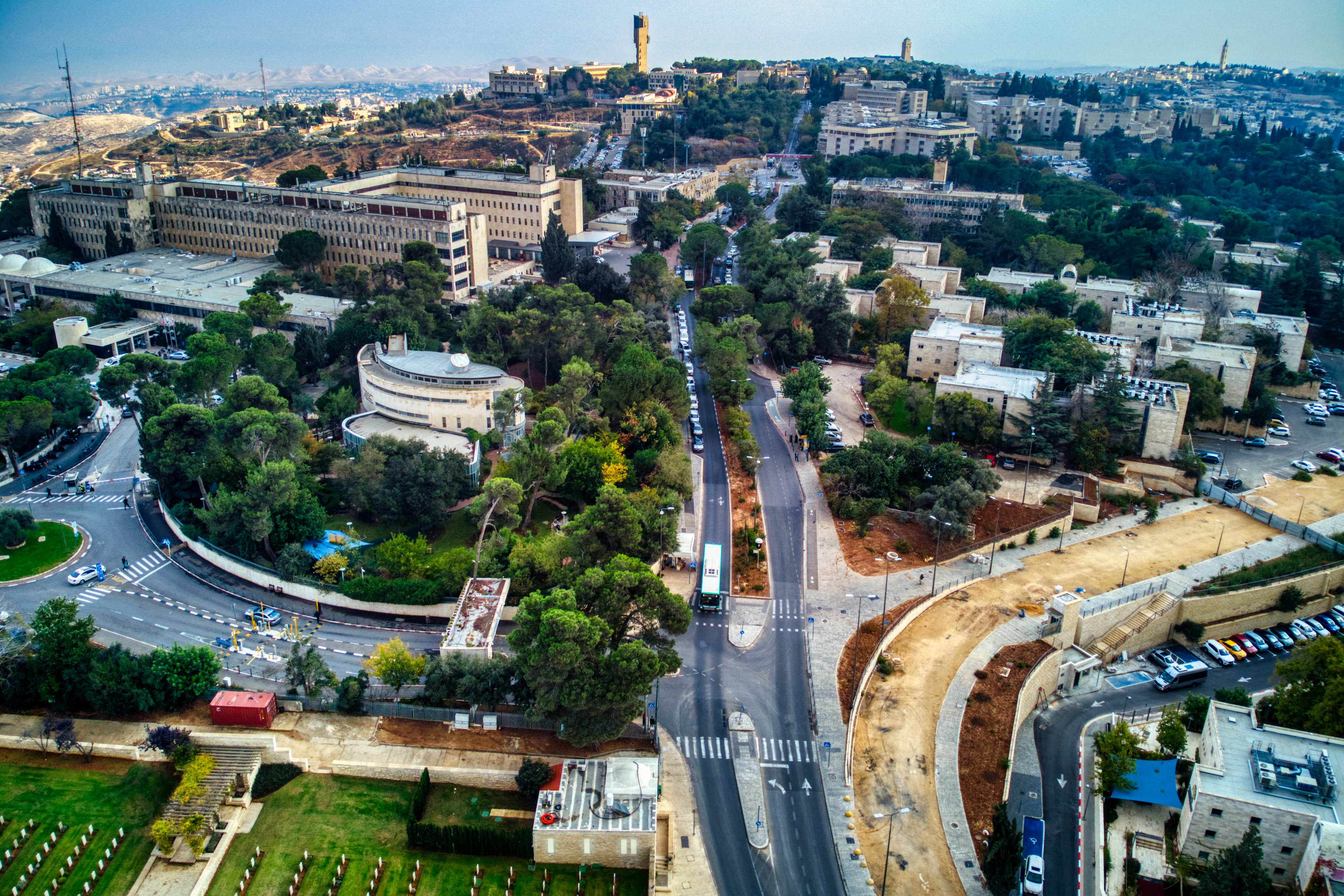|
List Of Songs About Jerusalem
This is a list of songs about Jerusalem, including major parts of the city such as individual neighborhoods and sections. Religiously significant to all three Abrahamic religions for centuries, Jerusalem has been artistically associated with widely varied concepts. There are many songs about Jerusalem from various time periods, especially nationalism, nationalistically-themed songs from the time of the Six-Day War, when East Jerusalem passed from Jordanian control to Israeli. Additionally many Tanakh, Biblical Psalms, styled as songs, were written specifically about Jerusalem. Jewish liturgy and hymns are rife with references to Jerusalem. Hebrew language *"Jerusalem" by Kenneth Lampl (2012) performed by the Zamir Chorale of Boston *"Al Chomotaich" (, "On Your Walls, Jerusalem") by Yaakov Shwekey *"Anachnu olim elaich, Yerushalayim" (, "We coming for you, Jerusalem"), performed by Nira Rabinovich *"Bisharayich Yerushalayim" (, "At Old City (Jerusalem), Jerusalem Gates"), salutin ... [...More Info...] [...Related Items...] OR: [Wikipedia] [Google] [Baidu] |
Jerusalem
Jerusalem is a city in the Southern Levant, on a plateau in the Judaean Mountains between the Mediterranean Sea, Mediterranean and the Dead Sea. It is one of the List of oldest continuously inhabited cities, oldest cities in the world, and is considered Holy city, holy to the three major Abrahamic religions—Judaism, Christianity, and Islam. Both Israel and Palestine claim Jerusalem as their capital city; Israel maintains its primary governmental institutions there, while Palestine ultimately foresees it as its seat of power. Neither claim is widely Status of Jerusalem, recognized internationally. Throughout History of Jerusalem, its long history, Jerusalem has been destroyed at least twice, Siege of Jerusalem (other), besieged 23 times, captured and recaptured 44 times, and attacked 52 times. According to Eric H. Cline's tally in Jerusalem Besieged. The part of Jerusalem called the City of David (historic), City of David shows first signs of settlement in the 4th ... [...More Info...] [...Related Items...] OR: [Wikipedia] [Google] [Baidu] |
Yoram Taharlev
Yoram Taharlev (; 24 January 1938 – 6 January 2022) was an Israeli poet, lyricist, and author. He wrote lyrics for hundreds of songs recorded by prominent composers and performers. Biography Yoram Taharlev was born on Kibbutz Yagur to Yaffa Yitzikovitz and the author and poet Haim Taharlev. During his military service, he served as a reporter for the army newspapers ''Bamahane Gadna'' and ''Bamahane Nahal''. In 1963, Taharlev met poet Nurit Zarchi while they were philosophy majors at Tel Aviv University. In August 1963, they married. They had two daughters, artist Roni Taharlev and Arela. At the beginning, Taharlev and Zarchi lived in kibbutz Yagur, where their elder daughter Roni was born, but later moved to Petah Tikva and from there to Rishon LeZion and eventually to Tel Aviv. After thirteen years of marriage, they separated. In 1978, Taharlev then married Linda, a United States citizen. Together they had a son, Daniel, and a daughter, Michal. Linda died in 2011. In 2014 ... [...More Info...] [...Related Items...] OR: [Wikipedia] [Google] [Baidu] |
Dudu Fisher
David "Dudu" Fisher (; born 18 November 1951) is an Israeli cantor and performer, best known for his Broadway performance as Jean Valjean in the musical ''Les Misérables''. Biography The son of a Holocaust survivor, Fisher was born in Petah Tikva, Israel. Fisher has three children from his first wife, Tova Fisher, and had a son from his second wife Rotel Elia in June 2016. Rotel is his promoter and his agent. Cantorial career Fisher began cantorial studies at age 22, after his discharge from the army following three years of service that included the Yom Kippur War. He studied at the Tel Aviv Academy of Music, and studied privately under Cantor Shlomo Ravitz. He then took up the cantorial position at the Great Synagogue in Tel Aviv, followed by four years in South Africa. For over 20 years, he was the cantor at Kutsher's Hotel in the Catskills during the Jewish high holidays. In 2005, he became the Chief Cantor of the Hampton Synagogue in Westhampton Beach, New York and its ... [...More Info...] [...Related Items...] OR: [Wikipedia] [Google] [Baidu] |
Central Command (Israel)
The Central Command (, ''Pikud Merkaz''), often abbreviated to Pakmaz (פקמ"ז), is a regional Command (military formation), command of the Israel Defense Forces. It is responsible for the Military unit, units and brigades located in the West Bank (under the West Bank Division), Jerusalem, the Sharon, Israel, Sharon, Gush Dan, and the Shephelah. The Aluf, commander of the central command is the one who is authorized to declare new cities in the Judea and Samaria Area. History During the 1948 Arab–Israeli War, the Central Command was in-charge of the war efforts against Jordan, particularly on the road to Jerusalem, occupying the "Small Triangle" (east Sharon, Israel, Sharon), Lod, and Ramla. During the Six-Day War, the Command led the occupation of the West Bank from Jordan. As of the First Intifada, the Command primarily engages in security and counter-terrorism activities, as well as more conventional military measures, in the West Bank. Towards the end of 2010 the dep ... [...More Info...] [...Related Items...] OR: [Wikipedia] [Google] [Baidu] |
Avigdor Hameiri
Avigdor Hameiri (Hebrew: אביגדור המאירי; September 16, 1890 – April 3, 1970) was a Hungarian-Israeli author. Biography Hameiri was born as Avigdor Menachem Feuerstein in 1890, in the village of Odavidhaza (near Munkatsch), Carpathian Ruthenia in Austria Hungary. Growing up with his grandfather instilled in him a love for the Hebrew language. Even though the bulk of Hungarian Jewry was still anti-Zionist, he had already developed an admiration for Zionism when he moved to Budapest. He served in the Austro-Hungarian army along the Eastern front of World War I. Taken prisoner by the Russians during the Brusilov Offensive in 1916, he joined a group of Hebrew writers in Odessa after his release. With their support, he emigrated to Palestine in 1921, and fought in the 1948 War of Independence. He recorded the events of his war service in his memoirs, ''The Great Madness'' (1929) and ''Hell on Earth'' (1932). Alon Rachamimov writes that Hameiri's war stories "reveal t ... [...More Info...] [...Related Items...] OR: [Wikipedia] [Google] [Baidu] |
Mount Scopus
Mount Scopus ( ', "Mount of the Watchmen/ Sentinels"; ', lit. "Mount Lookout", or ' "Mount of the Scene/Burial Site", or "Mount Syenite") is a mountain (elevation: above sea level) in northeast Jerusalem. Between the 1948 Arab–Israeli War and the Six-Day War in 1967, the peak of Mount Scopus with the Hebrew University campus and Hadassah Hospital was a UN-protected exclave of Israel within Jordan. Today, Mount Scopus lies within the municipal boundaries of the city of Jerusalem. Name and identification The ridge of mountains east of ancient as well as modern Jerusalem offers the best views of the city, which it dominates. Since the main part of the ridge bears the name Mount of Olives, the name "lookout" was reserved for this peak to the northeast of the ancient city. Its name in many languages (Hebrew, Arabic, Greek and Latin) means "lookout." Scopus is a Latinisation of the Greek word for "watcher", ''skopos''. . Adding to the multi-layered meaning of the name, it is ... [...More Info...] [...Related Items...] OR: [Wikipedia] [Google] [Baidu] |
Next Year In Jerusalem
''L'Shana Haba'ah B'Yerushalayim'' (), is a phrase that is often sung at the end of the Passover Seder and - in the Eastern Asheknazic rite - at the end of the ''Ne'ila'' service on Yom Kippur. Its use during Passover was first recorded by Isaac Tyrnau in his 15th century CE book cataloging the accepted tradition (''minhaggim'') of various Ashkenazi communities. ''L'Shana Haba'ah'' evokes a common theme in Jewish culture of a desire to return to a rebuilt Jerusalem, and commentators have suggested that it serves as a reminder of the experience of living in exile. Background After the destruction of the Jewish temple, the hope of seeing it rebuilt became a central component of Jewish religious consciousness and the most common way religious Jews have expressed hope for future redemption. The Talmud is replete with statements affirming the superior religious status of the Holy Land, the obligation of Jews to live there, and the confidence in the ultimate collective return o ... [...More Info...] [...Related Items...] OR: [Wikipedia] [Google] [Baidu] |
Avihu Medina
Avihu Medina (; born August 19, 1948, in Tel Aviv) is an Israeli composer, arranger, songwriter, and singer of Mizrahi music. Biography Medina was born in Tel Aviv. He was the third son of Aaron and Leah Medina. His mother's family immigrated from Yemen in 1906 and she was born in Jerusalem, and his father immigrated from Yemen in 1939 when it was under the British Mandate. He is Jewish, and his father was a cantor. As a teenager he lived on Kibbutz Kissufim.Zohar Argov's flower that launched a million cassettes He served as a tank commander in the |
King David
David (; , "beloved one") was a king of ancient Israel and Judah and the third king of the United Monarchy, according to the Hebrew Bible and Old Testament. The Tel Dan stele, an Aramaic-inscribed stone erected by a king of Aram-Damascus in the late 9th/early 8th centuries BCE to commemorate a victory over two enemy kings, contains the phrase (), which is translated as " House of David" by most scholars. The Mesha Stele, erected by King Mesha of Moab in the 9th century BCE, may also refer to the "House of David", although this is disputed. According to Jewish works such as the ''Seder Olam Rabbah'', '' Seder Olam Zutta'', and ''Sefer ha-Qabbalah'' (all written over a thousand years later), David ascended the throne as the king of Judah in 885 BCE. Apart from this, all that is known of David comes from biblical literature, the historicity of which has been extensively challenged,Writing and Rewriting the Story of Solomon in Ancient Israel; by Isaac Kalimi; page 32; C ... [...More Info...] [...Related Items...] OR: [Wikipedia] [Google] [Baidu] |
Harel Skaat
Harel Skaat (; born 8 August 1981) sometimes known by the mononym Harel is an Israeli singer and songwriter. He represented in the Eurovision Song Contest 2010 with the song "Milim" ("", "Words"). Skaat has been singing and performing in public since he was a child. At the age of six, he won a children's song festival competition. While still in elementary school he appeared on national television and as a teenager, he was the lead singer for both his city's and high school's bands. During his mandatory duty with the Israeli Defense Forces, he sang in the Communication Corps Band. Skaat's professional breakthrough came when he was a contestant on the second season of ''Kochav Nolad'' ("", "A Star is Born"), a reality competition television show similar in format to ''American Idol'', and finished in second place. After the show ended, he signed a recording contract with Hed Arzi, one of the largest music companies in Israel. His debut album, the self-titled ''Harel Skaat'', was ... [...More Info...] [...Related Items...] OR: [Wikipedia] [Google] [Baidu] |
Yehoram Gaon
Yehoram Gaon (; born December 28, 1939) is an Israeli singer, actor, director, comedian, producer, TV and radio host, and public figure. He has also written and edited books on Israeli culture. The son of Sephardic Jewish parents—a Bosnian father and Turkish mother, both immigrants to Israel—he became an early inspiration of "solidarity and pride" for the Sephardic community. Early life Gaon was born in the Beit Hakerem neighborhood of Jerusalem in 1939. His father, Moshe David Gaon, a historian, was born in Sarajevo, to a family of Sephardic Jewish descent in 1889, and immigrated to then British Mandate of Palestine (now Israel), where members of his family had lived for five generations. He was a school master and Hebrew teacher in Jerusalem, in Buenos Aires, Argentina, and in İzmir, Turkey. Gaon's father was also a poet and a scholar of Ladino. In Turkey, his father met and married his mother Sara Hakim, returning with her to Jerusalem. Gaon enlisted in the IDF ... [...More Info...] [...Related Items...] OR: [Wikipedia] [Google] [Baidu] |
Hadag Nahash
Hadag Nahash ( ', ) is an Israeli hip hop and funk band, founded in 1996 in Jerusalem, which makes leftist political statements in many of its protest songs. History Hadag Nahash has been a major contributor to the Israeli hip-hop scene, and is presently one of Israel's most successful bands, with eight studio albums released to date. The band's songs call for peace, tolerance and equality, and include political and social protest. Most songs are written by Sha'anan Streett, the band's lead vocalist. "We demand the freedom to write whatever we want at any given time, and that can be about, for example, marijuana or just having a good time, as well as social injustice. It’s not one or the other. Our lives contain both. And when we want to keep it real, we have to speak about both." Yossi Fine also produced the band's third studio album, "Homer Mekomi" (, "Local Material"), which was released in 2004. The biggest hit out of the album was " Shirat Hasticker" (, "The Sticker Son ... [...More Info...] [...Related Items...] OR: [Wikipedia] [Google] [Baidu] |





